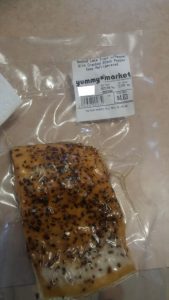Supplying a safe, nutritious, and increasing local food supply to any military outfit is a challenge.
 I was privileged for a few years to provide my thoughts to U.S. military food safety types once or twice a year while at Kansas State University in Manhattan.
I was privileged for a few years to provide my thoughts to U.S. military food safety types once or twice a year while at Kansas State University in Manhattan.
I made some lasting friendships, and deeply respect the challenges they faced.
Zulfikar Dogan of Ahval News writes that when the Turkish government issued a series of decrees reshaping the country’s institutions in the aftermath of the July 2016 coup attempt, none of the bodies it set its eye on were more significant than the Turkish Armed Forces.
The radical changes implemented in the military came under the spotlight last week when 21 commando trainees in the western province of Manisa were hospitalised with food poisoning. This followed mass outbreaks of food poisoning in May and June last year, again in training facilities in Manisa, where more than 1,000 soldiers became ill and one died.
Similar cases of mass food poisoning took place in other barracks across the country around the same time. Several government-linked catering companies have already lost their contracts, and the defence minister at the time, Nurettin Canikli, resolved to review catering tenders and introduce a new procurement procedure.
Now, spurred by this month’s poisonings, Özgür Özel, a member of parliament for the main opposition Republican People’s Party (CHP), directed a series of questions in the assembly to Defence Minister Hulusi Akar.
He asked whether the new procurement system described by Canikli last year had been put in place, and for information on the food supply at the Manisa barracks and on the companies involved in catering. He also demanded answers on the last date of inspection at the barracks and on the truth of claims that detachments tasked with checking food had been shut down.
But the ruling Justice and Development Party (AKP) rejected opposition proposals to create a special investigation commission and convene the Committee on National Defence in response to the cases of food poisoning.
After the cases of food poisoning, the Turkish Medical Association released a statement drawing attention to the vacuum left when the military medical institutions were turned over to the Ministry of Health. The association called for these institutions to be reopened and returned to the Turkish Armed Forces.
The Turkish Retired Non-Commissioned Officers Association gave its own statement on the matter, stressing that military doctors were soldiers as well as doctors and that the decrees had made the Turkish Armed Forces the only military in the world that did not have dedicated hospitals and doctors. The association also demanded to know whether private companies would be responsible for catering to Turkey’s troops in wartime.
The points Başbuğ and these associations raise are well illustrated by the response to the cases of mass food poisoning in May and June of last year. Since there was not adequate space in Health Ministry facilities to treat the thousands of poisoned troops, hundreds were forced to receive treatment on stretchers outside hospitals.
Similar scenes were replayed after the food poisoning this month. Handing military decision making to the civilian bureaucracy and dissolving military education and medical institutions has resulted in increased casualties.

